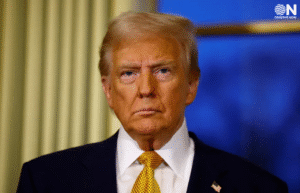Operation Sindoor: A strategic push to drive India’s precision and technology

In the early hours of May 7, 2025, India launched Operation Sindoor, a meticulously planned military offensive targeting nine terrorist camps across Pakistan and Pakistan-occupied Jammu and Kashmir (PoJK). This operation marks a significant evolution in India’s counter-terrorism strategy, emphasizing precision, technological sophistication, and strategic depth.
Unlike previous responses such as the Uri (2016) and Balakot (2019) strikes, which were swift and targeted, Operation Sindoor represents a multi-domain offensive involving coordinated efforts from the Indian Army, Navy, and Air Force. The operation was a direct response to the April 22 Pahalgam terror attack, which claimed the lives of 26 civilians.
A standout feature of Operation Sindoor was the Indian Air Force’s precision strike on Bahawalpur, targeting the Pakistan Army’s 31 Corps Headquarters. This facility was not only a military installation but also a hub for terrorist activities. The use of Rafale jets equipped with SCALP and HAMMER missiles demonstrated India’s enhanced long-range strike capabilities. These strikes were guided by real-time GPS and drone-based targeting, ensuring surgical precision with minimal collateral damage.
Among the nine terror camps destroyed, the Lashkar-e-Taiba facility in Muridke, where 26/11 attackers Ajmal Kasab and David Headley were trained, was a notable target. This underscores India’s commitment to dismantling long-standing terror infrastructures. Operation Sindoor also showcased India’s advanced air defense capabilities. In response to Pakistan’s attempted drone and missile attacks on Indian military installations, the Indian Armed Forces successfully neutralized these threats using the Integrated Counter-UAS Grid and Air Defence systems.
The operation’s execution was closely monitored by Prime Minister Narendra Modi, who praised the armed forces for their precision and professionalism. The mission was carried out without harming any civilians, highlighting India’s commitment to ethical military conduct. Internationally, Operation Sindoor garnered support from various nations. Countries like the United Kingdom, Russia, Israel, and members of the European Union acknowledged India’s right to self-defense and condemned terrorism in all forms.
In essence, Operation Sindoor signifies a paradigm shift in India’s approach to counter-terrorism. By integrating advanced technology, precise intelligence, and strategic coordination, India has demonstrated its capability and resolve to address cross-border terrorism effectively.
















